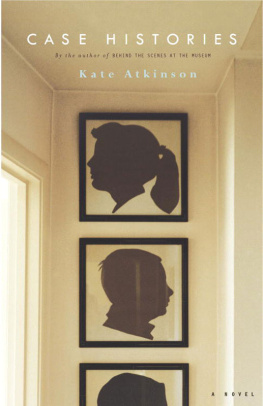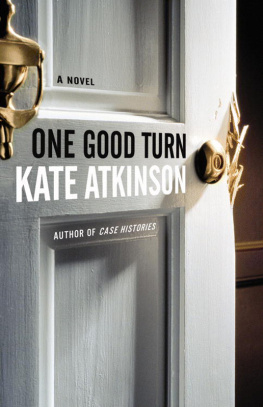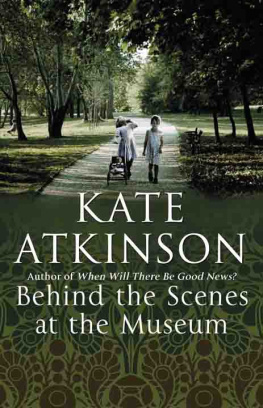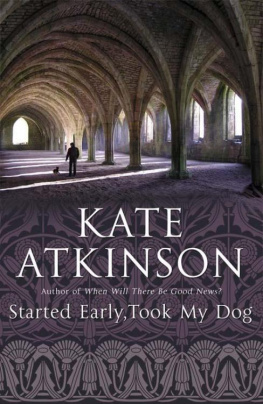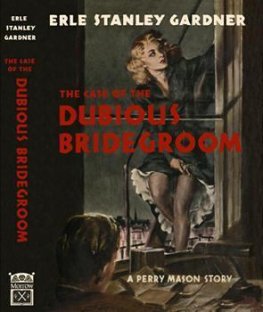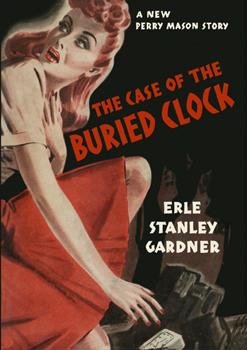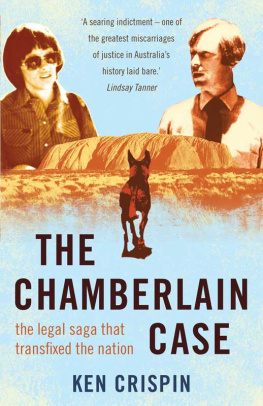Kate Atkinson - Case Histories
Here you can read online Kate Atkinson - Case Histories full text of the book (entire story) in english for free. Download pdf and epub, get meaning, cover and reviews about this ebook. year: 2008, genre: History. Description of the work, (preface) as well as reviews are available. Best literature library LitArk.com created for fans of good reading and offers a wide selection of genres:
Romance novel
Science fiction
Adventure
Detective
Science
History
Home and family
Prose
Art
Politics
Computer
Non-fiction
Religion
Business
Children
Humor
Choose a favorite category and find really read worthwhile books. Enjoy immersion in the world of imagination, feel the emotions of the characters or learn something new for yourself, make an fascinating discovery.
- Book:Case Histories
- Author:
- Genre:
- Year:2008
- Rating:5 / 5
- Favourites:Add to favourites
- Your mark:
- 100
- 1
- 2
- 3
- 4
- 5
Case Histories: summary, description and annotation
We offer to read an annotation, description, summary or preface (depends on what the author of the book "Case Histories" wrote himself). If you haven't found the necessary information about the book — write in the comments, we will try to find it.
Case Histories — read online for free the complete book (whole text) full work
Below is the text of the book, divided by pages. System saving the place of the last page read, allows you to conveniently read the book "Case Histories" online for free, without having to search again every time where you left off. Put a bookmark, and you can go to the page where you finished reading at any time.
Font size:
Interval:
Bookmark:
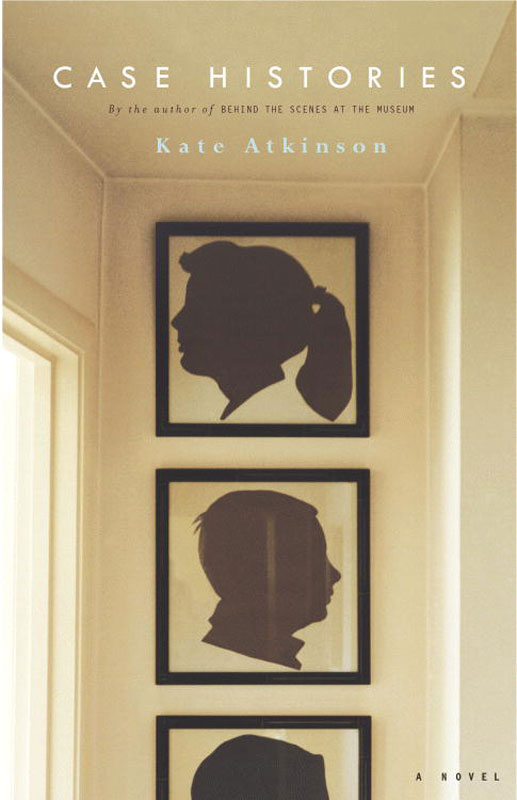
Copyright 2004 by Kate Atkinson
All rights reserved. No part of this book may be reproduced in any form or by any electronic or mechanical means, including information storage and retrieval systems, without permission in writing from the publisher, except by a reviewer who may quote brief passages in a review.
Little, Brown and Company
Hachette Book Group USA
237 Park Avenue, New York, NY 10017
Visit our Web site at www.HachetteBookGroupUSA.com.
First eBook Edition: October 2007
The characters and events in this book are fictitious.
Any similarity to real persons, living or dead, is coincidental and not intended by the author.
ISBN 978-0-316-03163-9
Not the End of the World
Emotionally Weird
Human Croquet
Behind the Scenes at the Museum
For Anne McIntyre
Ye shall know the truth, and the truth shall make you free.
JOHN 8:32
CASE HISTORY NO. 1 1970
Family Plot
H ow lucky were they? A heat wave in the middle of the school holidays, exactly where it belonged. Every morning the sun was up long before they were, making a mockery of the flimsy summer curtains that hung limply at their bedroom windows, a sun already hot and sticky with promise before Olivia even opened her eyes. Olivia, as reliable as a rooster, always the first to wake, so that no one in the house had bothered with an alarm clock since she was born three years ago.
Olivia, the youngest and therefore the one currently sleeping in the small back bedroom with the nursery-rhyme wallpaper, a room that all of them had occupied and been ousted from in turn. Olivia, as cute as a button they were all agreed, even Julia, who had taken a long time to get over being displaced as the baby of the family, a position she had occupied for five satisfying years before Olivia came along.
Rosemary, their mother, said that she wished Olivia could stay at this age forever because she was so lovable. They had never heard her use that word to describe any of them. They had not even realized that such a word existed in her vocabulary, which was usually restricted to tedious commands: come here, go away, bequiet, andmost frequent of allstop that. Sometimes she would walk into a room or appear in the garden, glare at them, and say, Whatever it is youre doing, dont, and then simply walk away again, leaving them feeling aggrieved and badly done by, even when caught red-handed in the middle of some piece of mischiefdevised by Sylvia usually.
Their capacity for wrongdoing, especially under Sylvias reckless leadership, was apparently limitless. The eldest three were (everyone agreed) a handful, too close together in age to be distinguishable to their mother so that they had evolved into a collective child to which she found it hard to attribute individual details and which she addressed at randomJulia-Sylvia-Amelia-whoever you aresaid in an exasperated tone as if it were their fault there were so many of them. Olivia was usually excluded from this weary litany; Rosemary never seemed to get her mixed up with the rest of them.
They had supposed Olivia would be the last of the four to occupy the small back bedroom and that one day the nursery-rhyme wallpaper would finally be scraped off (by their harassed mother because their father said hiring a professional decorator was a waste of money) and be replaced by something more grown-upflowers or perhaps ponies, although anything would be better than the Elastoplast pink adorning the room that Julia and Amelia shared, a color that had looked so promising to the two of them on the paint chart and proved so alarming on the walls and which their mother said she didnt have the time or money (or energy) to repaint.
Now it transpired that Olivia was going to be undertaking the same rite of passage as her older sisters, leaving behind therather badly alignedHumpty Dumptys and Little Miss Muffets to make way for an afterthought whose advent had been announced, in a rather offhand way, by Rosemary the previous day as she dished out on the lawn a makeshift lunch of corned beef sandwiches and orange squash.
Wasnt Olivia the afterthought? Sylvia said to no one in particular, and Rosemary frowned at her eldest daughter as if she had just noticed her for the first time. Sylvia, thirteen and until recently an enthusiastic child (many people would have said overenthusiastic), promised to be a mordant cynic in her teenage years. Gawky, bespectacled Sylvia, her teeth recently caged in ugly orthodontic braces, had greasy hair, a hooting laugh, and the long, thin fingers and toes of an alien from outer space. Well-meaning people called her an ugly duckling (said to her face, as if it were a compliment, which was certainly not how it was taken by Sylvia), imagining a future Sylvia casting off her braces, acquiring contact lenses and a bosom, and blossoming into a swan. Rosemary did not see the swan in Sylvia, especially when she had a shred of corned beef stuck in her braces. Sylvia had recently developed an unhealthy obsession with religion, claiming that God had spoken to her (as if God would choose Sylvia). Rosemary wondered if it was a normal phase that adolescent girls went through, if God was merely an alternative to pop stars or ponies. Rosemary decided it was best to ignore Sylvias tte--ttes with the Almighty. And at least conversations with God were free, whereas the upkeep on a pony would have cost a fortune.
And the peculiar fainting fits that their GP said were on account of Sylvia outgrowing her strengtha medically dubious explanation if ever there was one (in Rosemarys opinion). Rosemary decided to ignore the fainting fits as well. They were probably just Sylvias way of getting attention.
Rosemary married their father, Victor, when she was eighteen years oldonly five years older than Sylvia was now. The idea that Sylvia might be grown-up enough in five years time to marry anyone struck Rosemary as ridiculous and reinforced her belief that her own parents should have stepped in and stopped her from marrying Victor, should have pointed out that she was a mere child and he was a thirty-six-year-old man. She often found herself wanting to remonstrate with her mother and father about their lack of parental care, but her mother had succumbed to stomach cancer not long after Amelia was born, and her father had remarried and moved to Ipswich, where he spent most of his days in the bookies and all of his evenings in the pub.
If, in five years time, Sylvia brought home a thirty-six-year-old, cradle-snatching fianc (particularly if he claimed to be a great mathematician), then Rosemary would probably cut his heart out with the carving knife. This idea was so agreeable that the afterthoughts annunciation was temporarily forgotten and Rosemary allowed them all to run out to the ice-cream van when it declared its own melodic arrival in the street.
The Sylvia-Amelia-Julia trio knew that there was no such thing as an afterthought, and the fetus, as Sylvia insisted on calling it (she was keen on science subjects), that was making their mother so irritable and lethargic was probably their fathers last-ditch attempt to acquire a son. He was not a father who doted on daughters, he showed no real fondness for any of them, only Sylvia occasionally winning his respect because she was good at maths. Victor was a mathematician and lived a rarefied life of the mind, where his family was allowed no trespass. This was made easy by the fact that he spent hardly any time with them. He was either in the department or his rooms in college, and when he was home he shut himself in his study, occasionally with his students but usually on his own. Their father had never taken them to the open-air pool on Jesus Green, played rousing games of Snap or Donkey, never tossed them in the air and caught them or pushed them on a swing, had never taken them punting on the river or walking on the Fens or on educational trips to the Fitzwilliam. He seemed more like an absence than a presence: everything he wasand was notwas represented by the sacrosanct space of his study.
Font size:
Interval:
Bookmark:
Similar books «Case Histories»
Look at similar books to Case Histories. We have selected literature similar in name and meaning in the hope of providing readers with more options to find new, interesting, not yet read works.
Discussion, reviews of the book Case Histories and just readers' own opinions. Leave your comments, write what you think about the work, its meaning or the main characters. Specify what exactly you liked and what you didn't like, and why you think so.

